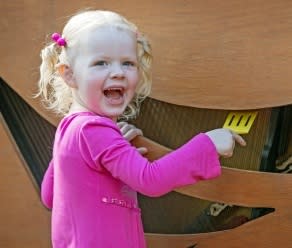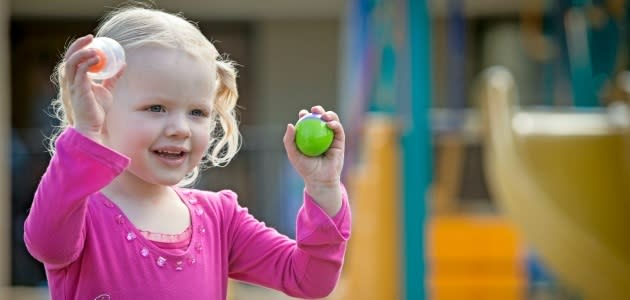Disability detection is key to full life
Some children need help to learn to talk but few start therapy as a two-week-old baby.
Shayla Riley, who turns three on Monday, is the youngest child to be enrolled in the early intervention program at Telethon Speech and Hearing Centre for Children in Wembley.
A suspected hearing loss was picked up through the centre's newborn hearing screening the day after she was born in 2010, and her shell-shocked parents Lisa and Tony wanted to know for sure before Mr Riley, a fly-in, fly-out worker, was due to return to work.
Staff at the Wembley centre fast-tracked a more comprehensive hearing test when Shayla was two weeks old, which confirmed a moderate hearing loss in both ears, and she was enrolled in a therapy program.
By the time she was four weeks old, she was fitted with hearing aids and doing therapy to help her respond to sounds and develop the same listening and language skills as other children.
Mrs Riley said they had not looked back since, and despite fears their daughter would be behind other children, she now had near- perfect speech and language for her age.
"When you first find out that your baby has a hearing loss, you look into the future and wonder how hard it will be to raise a child with a disability but now I wouldn't change her for the world," she said.
"She doesn't stop talking, she's bright and happy, and you don't know how much of that is because of all the work and effort everyone's put in."
Mrs Riley credits newborn screening in maternity hospitals for picking up a hearing loss that might have been found much later, delaying her development.
One to two babies in 1000 have a hearing loss in both ears and children who are diagnosed and start therapy before six months of age have the best chance of developing normal speech and language.



